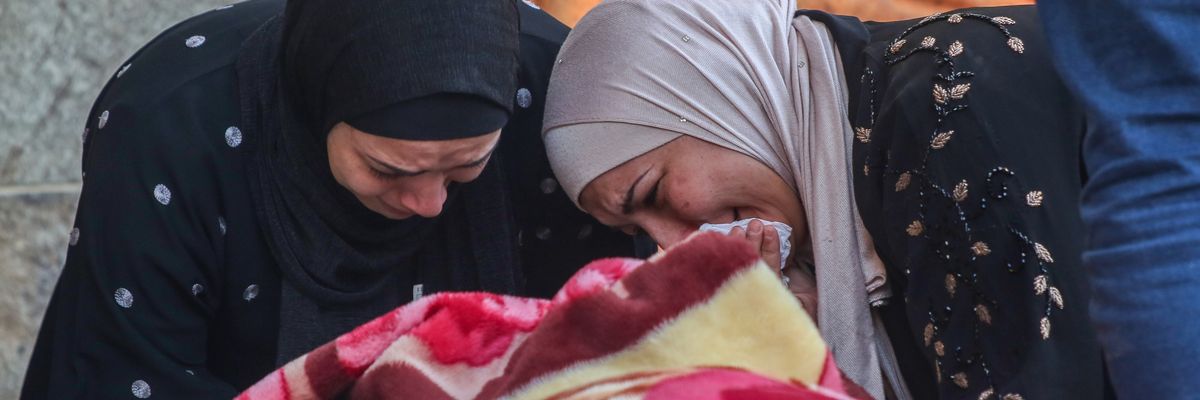The following is from a speech given by CODEPINK co-director Danaka Katovich at Palestinian Feminist Collective’s International Working Women’s Day Vigil for Palestine on Friday March 8.
I was three years old when CODEPINK was founded, by women I still interact with on a daily basis. So I’ve been able to hear what sort of discursive battles they had to face in the United States with other “feminist” groups in the lead up to the U.S. invasions and occupations of the early 2000s. Media or politicians would show pictures of women in Kabul or Baghdad wearing hijabs and insist that it was actually the U.S. military that would bring them empowerment.
That notion is obviously, to us at least, rooted in racism, condescension, and quite frankly—misogyny. And I want to talk about the condescension part and how I feel it’s my responsibility as a feminist in the West, a part of a feminist organization in the West to throw condescension out the window, and what sort of political clarity it provides in incredibly important moments like right now.
I looked up the definition of “condescending” for this, just to see if it would provide anything I didn’t already know. What we immediately assume the word to mean if we have heard it before is something like patronizing, or talking down to people. But what is also included in the definition of condescension is “disdain.” Disdain is the feeling that someone is unworthy of your respect.
We should be asking a lot of questions when the intent of the story was to galvanize feminists in the West to support the ongoing genocide of the Palestinian people.
We know how mainstream Western feminists talk about Palestinian, Arab, and Muslim women. Examples include insisting, either directly or indirectly, that war and occupation will help them somehow or that their oppressors treat women better than they do. “Feminists” like Tammy Duckworth or Nancy Pelosi will always agree that Israel treats women great, as if Palestinian women who are murdered and abused at the hands of Israel don’t exist at all. The subtext of this being that Palestinian women couldn’t possibly know what’s good for them. That’s disdain. That’s not feminism.
Having a perspective on feminism that rejects condescension allows us to avoid the same pitfalls so many people didn’t when the U.S. was talking about invading Afghanistan under the guise of “liberating women.”
When
The New York Times came out with a story about mass rape on October 7, we were able to ask, “Where is your evidence?” And we were right to ask those questions, right? And we should be asking a lot of questions when the intent of the story was to galvanize feminists in the West to support the ongoing genocide of the Palestinian people. They didn’t need evidence. They just needed Western women to consent to dropping bombs on Palestinian women to exact revenge for something that they completely made up. It demanded we value Israeli women over Palestinian women because that’s what they do.
Feminism that is free of condescension allows us to act with clarity in these moments. It allows us to act with humility. It allows us to be in genuine solidarity with women all over the world and not just in our hyper-specific contexts. We can only know what’s best for us as individuals, but what’s best for women as a whole will be shaped by Palestinian resistance struggles, and struggles for gender oppressed people all over the world. May we all operate with this razor sharp clarity, without condescension, until Palestine is free and long after.
